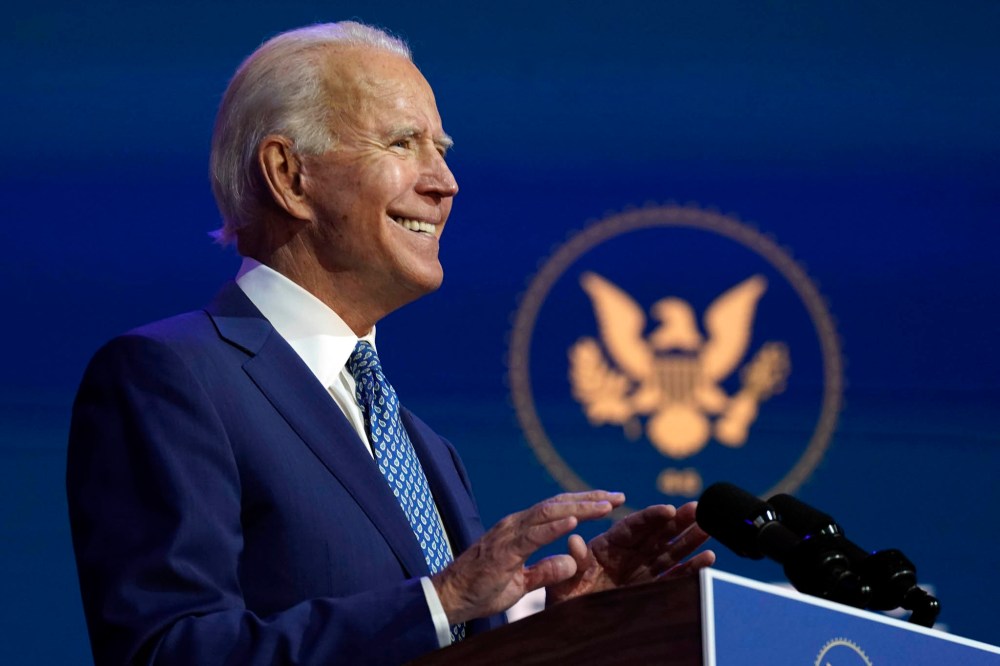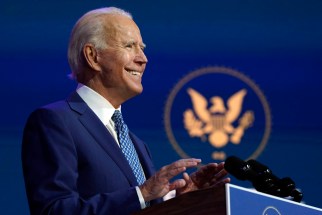‘Buy American’ approach creates concerns
Read this article for free:
or
Already have an account? Log in here »
To continue reading, please subscribe:
Monthly Digital Subscription
$1 per week for 24 weeks*
- Enjoy unlimited reading on winnipegfreepress.com
- Read the E-Edition, our digital replica newspaper
- Access News Break, our award-winning app
- Play interactive puzzles
*Billed as $4 plus GST every four weeks. Offer only available to new and qualified returning subscribers. Cancel any time.
Read unlimited articles for free today:
or
Already have an account? Log in here »
Hey there, time traveller!
This article was published 20/11/2020 (1565 days ago), so information in it may no longer be current.
There are many reasons Canadians, as well as residents of other countries outside the borders of the United States of America, might have been inclined to breathe a sigh of relief at the much-anticipated result of the U.S. presidential election.
An eventual end to political chaos. A curtailment of four years of inexplicable attacks on America’s traditional allies and appeasement of global foes. The possibility of civil discourse with the leader of the world’s democratic superpower. Fewer outright lies in the daily news cycle. Stability. Reliability. A bit of peace and quiet, for a change, emanating from the White House.
But among the reasons for an easing of U.S.-relations-related stress, one shouldn’t count any assumption that trade between Canada and its largest economic partner will become easier under an administration led by president-elect Joe Biden. That much was clear long before the recent election campaign began in earnest, and became markedly more pronounced as the former vice-president used various campaign addresses to delineate his “Buy American” approach to international trade.
Simply put, a Biden administration — while sure to be less combative and much more reliably factual in its dealings with Canada and other international markets — is likely, especially in the early going, to be decidedly protectionist in its formulation of a pandemic-recovery economic plan and will undoubtedly play hardball in its dealings with Canadian trade officials eager to restore a semblance of stability to ongoing diplomatic and trade relations.
Such was the case 12 years ago, when the optimism that gushed forth after the election of Barack Obama was replaced with a bareknuckle trade approach that effectively amended the new president’s campaign slogan to “Yes We Can” figuratively punch you in the trade-negotiation face.

In the aftermath of the global economic collapse of 2008, then-president Obama attached a domestic-purchase rider to his massive economic stimulus package, blocking the use of foreign-made steel, aluminum, manufactured products and textiles in public projects funded by the stimulus bill. It took more than a year for representatives of then-prime minister Stephen Harper’s government, aided by pressure from Republican legislators representing states with crucial trade ties to Canada, to convince the Obama administration to walk back some of its buy-American restrictions.
As did Mr. Obama, Mr. Biden will arrive in the White House (assuming its current resident grudgingly accepts the reality of the election result or is finally compelled by right-minded Republicans to submit to the democratic process) in the midst of a crushing financial crisis — this one propelled by the ongoing COVID-19 pandemic.
The daunting job of righting the U.S. economy will be made immeasurably more difficult by the manner in which the Trump administration has ignored scientific and medical advice and allowed the novel coronavirus to run rampant throughout the nation. In addition to addressing the grim fiscal realities, Mr. Biden will also need to stem the pandemic’s spread while crafting a recovery plan that somehow offers solace to the millions of Americans who remain reluctant or unable to come to grips with the idea the Trump presidency has come to an end.
Against that backdrop, Canada’s objections to Mr. Biden’s “buy American” agenda will hardly be heard. But over time, civil conversation and cooler heads will find a path forward for the world’s second-largest trading alliance. Canadians might not like what they hear from the new president on trade issues, but at least they’ll be able to count on most of it being true.








